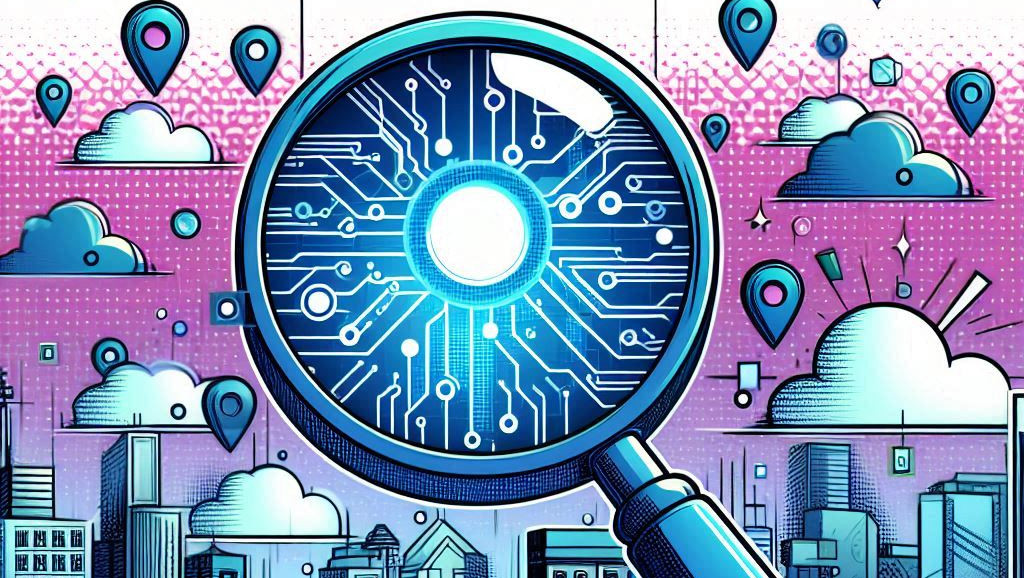What does Google’s AI Mode Mean for the Ad Industry?
by on 29th May 2025 in News

Google's rollout of AI Mode marks another momentous change in the search landscape. What does the update mean for members of the ad industry?
Last week, Google announced another momentous change to its crown jewel, Google Search, with the rollout of AI Mode to all US users. The update comes a year after its introduction of AI Overviews, which gave Google a pivotal boost in catching up to the biggest competitors in the AI race, such as OpenAI and Perplexity.
Google tells us: “AI Mode is our most powerful AI search, with more advanced reasoning and multimodality, and the ability to go deeper through follow-up questions and helpful links to the web…Under the hood, AI Mode uses our query fan-out technique, breaking down your question into subtopics and issuing a multitude of queries simultaneously on your behalf. This enables Search to dive deeper into the web than a traditional search on Google, helping you discover even more of what the web has to offer and find incredible, hyper-relevant content that matches your question.”
Granted, that all sounds fairly good for consumers – but what about the knock-on effect of these changes for members of the ad tech ecosystem?
How AI search will impact members across the ad tech landscape has been a pressing concern for the sector over the past few years, growing more urgent as AI chatbots and AI-enhanced search engines become the new norm. Publishers, particularly, have found themselves in a precarious position. Already in the midst of a challenging period, traditional search being left behind in favour of AI-powered search, has plunged publishers into further uncertainty.
Following Google’s introduction of AI Overviews last year, head of search Liz Reid, claimed that “links included in AI Overviews get more clicks than if the page had appeared as a traditional web listing for that query”. Yet, many publishers reported that the update had reduced their traffic. Now, Google’s AI Mode is also under fire, with some outright calling it “theft”. The News/Media Alliance, a US trade association backing some of the biggest news publishers criticised the tech giant’s update, saying that the new feature deprives publishers of both traffic and revenue. As a knock-on effect, we can expect to see a significant shift in ad spend allocation within marketing budgets.
We asked experts from across the industry for their take on the matter. What does Google’s AI Mode mean for the ad industry?
AI Mode strips value from the very ecosystem AI depends on

Google’s AI Mode represents a fundamental shift from search as information discovery towards a direct answer provision. It threatens publisher and retail revenue while creating new opportunities for brand visibility and authority-building. It’s an exciting leap in user experience but strips value from the very ecosystem AI depends on. Around 80% of users rely on zero-click results, reducing organic traffic by around 25%.
Publishers and retailers must adapt. They must diversify their offer, optimise for generative engine optimisation (GEO), and prioritise experience, expertise, authority, and trust. For too long, publishers have ceded control to platforms supposed to offer visibility. Big tech must move beyond extraction, rethinking attribution, compensation, and balance. We cannot wait. A publisher-led index or a shared AI model could reset the terms. Innovation is not exclusive to tech giants. Without action, we risk a quieter web where fewer voices and only the wealthiest shape the world’s knowledge.
Dion Bailey, Co-Founder and CPTO, The News Movement
AI may be the final blow for last-click attribution

This move is likely to further reduce CTRs as searchers get answers to their questions in the search engine, which in turn means a reconsideration of how to measure the impact of search. Perhaps looking at a full funnel approach rather than channel by channel – AI may be the final blow for last-click attribution.
For instance, fewer click-throughs wouldn’t necessarily mean your website isn’t as important. Instead, it means website content needs to be more targeted and relevant than ever, incentivising AI bots to retrieve and show high quality information on offer.
An optimised product feed is also important with Google’s new shopping mode catering to user demand for visual inspiration, making creative outputs and high-quality imagery essential for impactful advertising.
We're helping clients pivot toward this future by prioritising brand building and relevance as core drivers of long-term ROI as well as thinking about where else brands can show up.
Olivia Hill, Paid Media Manager, 26PMX
There will be a major impact on the allocation of advertising budgets

With Google increasingly pushing adoption of its AI Mode for search, the user journey is set to become even more streamlined and conversational. However, with AI-generated overviews and chat interfaces taking greater precedence in consumer engagement, the traditional “search and click” model faces major disruption.
In particular, this shift will change user behaviour, and the number of websites and ads people interact with is already declining. This raises urgent questions about the future viability of the ad-supported internet model, particularly for long tail publishers who rely on search traffic.
As a result, there will be a profound impact on the allocation of advertising budgets. Search ads are the obvious casualty, but web display budgets will also decrease as customers are less likely to click through to websites and see an ad. Channels like CTV, DOOH, and in-app advertising are poised to benefit as brands seek accountable, high-attention environments.
Grant Gudgel, SVP Marketing, Verve
A leap forward in usability

Google’s new AI Mode in Search is a leap forward in usability – fewer clicks, faster answers, and a more conversational experience. But for the media ecosystem, it marks another turning point. Zero-click searches will rise even more, and the impact on publisher traffic and ad revenue could be significant.
Google is adapting because it has to – users have already migrated to AI tools that provide more direct answers and, in many cases, a better user experience than the open internet. But this evolution also risks undermining the very content ecosystem it relies on. For media businesses, the urgency to diversify revenue, build direct audience relationships, and safeguard IP has never been greater.
Benjamin Lanfry, Chief Supply & Operations Officer, Ogury
AI tools bring a completely new approach to the ad world

Publishers may need to rethink monetisation, moving from click-based ad models to value based partnerships. However, retailers will benefit from integrations with AI platforms, ensuring their products show up when people ask where to buy something.
Ad tech must evolve to support this, it’s a new technology that optimises for conversational engagement instead of clicks. This means that keeping product information up to date will allow AI systems to easily find it and understand. It helps to have good reviews and details like price, delivery and availability.
It’s important to realise that AI tools bring a completely new approach to the ad world. They don’t just show a list of links like old search engines – they interact with users and give full answers. That means brands need to show up in those answers, is a native way.
I believe and think many of my colleagues from the field would agree that AI will take a significant share of revenue that used to go to publishers, it will use publishers' content but wont credit it. Microsoft (Xandr) just announced that AI will be their next DSP platform, connected only to Microsoft products.
Big tech could cut publishers out and the landscape of ad tech could shift drastically from being familiar to a completely new era.
Emin Alpan, CEO, Aceex








Follow ExchangeWire